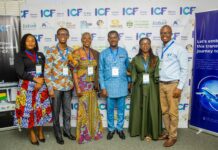
Most aid groups operating in Nigeria’s north-east are wasting funds meant to help victims of the Islamist Boko Haram insurgency, a state governor has said.
Only eight of 126 registered agencies in Borno state were there to genuinely help, Kashim Shettima said.
He criticised the UN children’s agency (Unicef) for buying bullet-proof cars, saying he did not use such vehicles.
Last month, the UN launched a $1bn (£825,000) appeal for those facing hunger and starvation in the region.
The UN said that nearly 5.1 million people in three north-eastern states were expected to face serious food shortages as for a third year in a row farmers had been unable to plant, fearing unexploded improvised devices left behind by militants.
Urgent aid was needed for some 100,000 people, mostly children, at risk of dying of starvation.
The military has recaptured much of the land controlled by Boko Haram in 2014, but thousands of people who fled their homes are still living in camps.
Governor Shettima did single out some aid agencies that were doing a good job such as the UN’s World Food Programme (WFP), the International Committee of the Red Cross, the International Organization for Migration, the Norwegian Refugee Council and the Danish Refugee Council.
But those agencies only there to profit “from the agony of our people” should leave, he said.
‘White flashy bullet-proof jeeps’
According to the Associated Press news agency, Mr Shettima made the comments on Tuesday night to MPs and journalists at the state legislature in Borno’s main city of Maiduguri.
The governor accused some agencies of concentrating too much on the camps for those displaced by the conflict.
“We are in the post-conflict phase of insurgency era where we are concentrating on recovery, reconstruction and rehabilitation. But the foreign NGOs have near fixation on the IDP camps,” Nigeria’s Premium Times newspaper quotes him as saying.
“We hardly know what the UN agencies are doing. We only see them in some white flashy bullet-proof jeeps; apart from that, we hardly see their visible impacts.”
The governor said he hoped the camps would be closed by the end of May this year, according to Nigeria’s Leadership newspaper.
Last month, Nigeria’s President Muhammdu Buhari accused the UN and aid agencies of deliberately exaggerating the humanitarian crisis and whipping up “a non-existent fear of mass starvation” to get more funds.
Unicef has not yet commented on Mr Shettima’s remarks.




